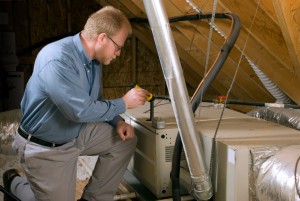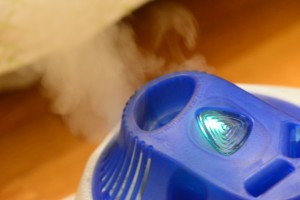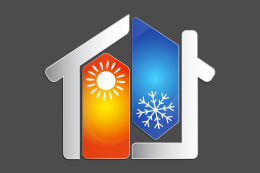Save Energy at Home With These 5 Tips
Energy for heating and cooling your home is often the biggest portion of your monthly utility bill, so saving energy helps you save money. But what kind of actions will give you the best benefit in terms of utility savings in HVAC services? Here are five great tips to help you save energy in your home this year.
Common Causes of a Broken HVAC Unit
When your HVAC unit stops working, it can leave your home uncomfortable and damp. But what type of things cause problems that require HVAC repair? Here is a list of the top causes that require HVAC services for your unit.
What Should You Look for When Buying a New HVAC Unit?
Whether you’re already in the market for a new HVAC unit or are just starting to research replacements for an aging system, knowing what to look for is vital to getting a good deal on a system that will provide years of inexpensive, effective service. in this post, we’ll go through a few features you should be aware of while shopping for your new system:
5 Warning Signs That You Need to Replace Your Furnace
It thumps and bumps, it needs repairs and it’s costing a fortune to keep it running. Your furnace has a certain lifespan and ignoring the warning signs can lead you to an expensive emergency replacement. But how do you know what those warning signs and what they mean? Here are five signs to pay attention to:
5 Warning Signs Your Furnace Needs Replacement
- Your energy bills are increasing in usage. Though your energy rates may go up and down with the market and winters may be more mild or cold, your usage shouldn’t change drastically during an average winter. If the amount of energy used by your system goes up drastically, it means your system isn’t working as efficiently and is heading towards failure.
- The furnace system is more than 10-15 years old. Most systems are designed to last about this long, so if your system is older than that, it’s probably about time for a replacement.
- System repairs are becoming more frequent. As systems age, the mechanical parts begin to fail and require replacement. Though there is a certain amount of this happening during the lifetime of the furnace, when your repair bills start to go up significantly, it’s time to start furnace shopping.
- You’re constantly adjusting the thermostat. Like Goldilocks and the three bears, it seems as though one room is too hot and the next is too cold. Another symptom of a failing furnace system is when it loses the ability to keep regular temperatures in your home. As the system fails, it either has a harder time getting the warmed air where it needs to go in your home or isn’t communicating properly with your thermostat.
- Your furnace is making unusual noises. Bangs, rattles, squeals and whines are all noises you should be concerned about when the furnace makes them, but any unusual noise should receive prompt attention. Ignoring these noises means your system may fail quickly, so even if you don’t have the cash to completely replace it, get it repaired as quickly as possible.
By paying attention to these warning signs, you can better plan your furnace replacement. At Cox Air, we’re happy to repair your existing system to buy a little more time or we’ll help you find the perfect replacement furnace for your home. Please contact us today to talk to one of our experienced associates for more information.
Why Winter Air Needs Humidifying
When winter’s air is biting at your nose, the warm indoors of your home is a wonderful place to be, but when the air in your home dries your skin and respiratory system, it’s not so enjoyable. Here are a few reasons why a humidifier should be on the front lines of your defense against dry winter air.
- Start to feel better faster. When you use a humidifier, your respiratory system has a chance to heal faster from colds, allergies and other annoying winter respiratory ailments. The humidity helps drain your sinuses faster and keeps your respiratory passages operating smoothly.
- Goodbye to gobs of lotion. Dry skin is the bane of many people during winter’s cold days. Humidifying the air helps treat and prevent dry skin by keeping your skin better moisturized. It also helps keep your lips from chapping and can be easier on your mucous membranes.
- Find respiratory relief. Whether it’s improving your sinus congestion, easing your allergies or reducing your congestion, adding humidity to the air helps you breathe easier. Doctors regularly recommend humidifiers as a natural treatment for those with respiratory ills.
- Silence the snoring. As part of your respiratory tract, keeping your throat lubricated is vital to your health. But did you know that humidifying the air in your home can also help silence snoring for the same reason? The extra moisture helps keep the snoring in your home down to a bare — and quiet — minimum.
- Protect your woodwork. When you don’t use a humidifier, the wood and glue in your woodwork dries out. This causes wood pieces to fall apart or crack due to the moisture being pulled out of the wood. A humidifier helps keep that valuable moisture in the wood where it belongs, protecting it.
- Say no to nosebleeds. A humidifier also moisturizes your mucous membranes, including your nasal passages. Because wintertime nosebleeds are caused by fragile and dry membranes, keeping your nose well humidified helps prevent these troublesome traumas. Humidity helps encourage healthier conditions and drives away many difficult moisturizing issues.
By adding a humidifier to your furnace system, you’re ensuring that your home will remain comfortable through the cold season. If you need help determining the best humidifier for your home or for help with other HVAC questions, please contact our associates today. We’ve been serving Florida homeowners with exceptional service since 1958.
HVAC Terminology Everyone Should Know
Let’s face it — people in technical fields tend to use jargon that may or may not make sense to the average Joe, but when it comes to your HVAC system, there are a few terms that will help you better understand any issues with your system, or how efficiently it’s running. Here is a quick selection of HVAC terms that everyone needs to know:
Are “Smart” Thermostats Really Worth It?
Now that “smart” thermostats have been out for a few years, the bugs have been shaken out and they’re becoming much more popular. But why? Is it really worth the extra expense and frustration to get a new thermostat and learn how to use it? In one word: absolutely! Here’s why:
A Look Back: How Homes Were Once Warmed
Though it’s something we tend to take for granted, automated home heating systems are actually a relatively recent invention. Only dating back to the late Victorian era, central heating systems as we know them provide a comfortable environment to live, work and rest in. In this post, we’ll take a look at how homes were heated in the past and what older techniques are being revived using innovative techniques.
Why Winter Is the Time to Install Your AC Unit
When winter’s cool temperatures settle in, it’s easy to put off that new AC unit until spring. Why spend the money now when you can wait, right? Winter is actually the best time to have your AC unit installed, saving you time, money and aggravation through the entire process. Here’s why:
















Recent Comments